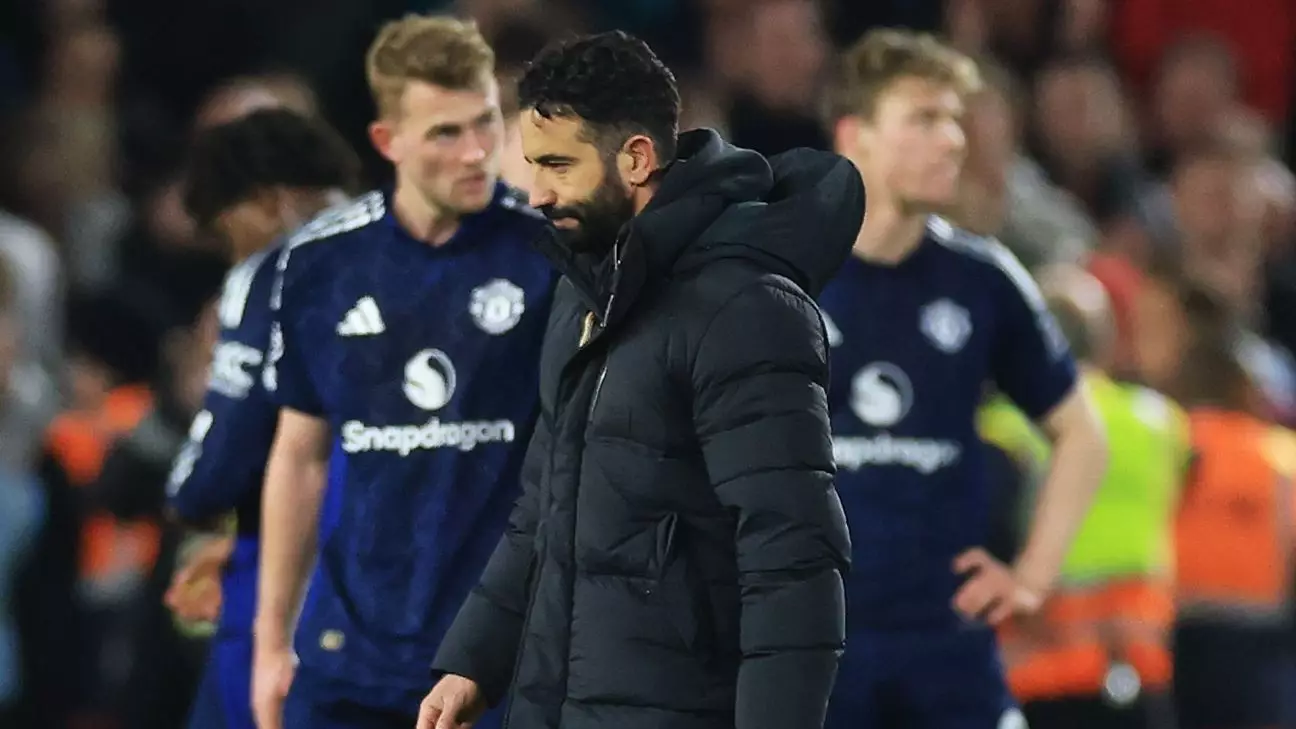Ruben Amorim finds himself at the helm of Manchester United during a turbulent time, grappling not only with disappointing results but also with the weight of expectations that come with the storied legacy of this football club. After yet another setback, this time a defeat against Nottingham Forest, Amorim expressed the inevitable pressure associated with managing one of the largest teams in the world. His acknowledgment that “you don’t have the time” at Manchester United underscores the urgent need for tangible results in an increasingly unforgiving environment. With the pressure mounting, any misstep could amplify the scrutiny he faces, making it clear that the luxury of patience is not an option.
Poor Performance and Missed Opportunities
The recent match revealed the underlying issues plaguing United’s performances. Despite dominating possession, the team failed to translate this advantage into meaningful scoring opportunities. The early goal from Nottingham’s Anthony Elanga put them on the back foot, allowing Forest to retreat into a defensive mindset comfortably. Amorim’s comments about controlling the game resonated with fans; however, mere control without effectiveness in the attacking third translates into lost points and diminished morale. Alejandro Garnacho’s struggles epitomize this challenge; his energetic approach and willingness to shoot resulted in numerous attempts, yet none posed a genuine threat to Forest’s goalkeeper. Such instances highlight a deeper malaise within the squad, where talent doesn’t seamlessly convert into impactful performances.
The Next Steps for Amorim
Ruben Amorim’s tactical adjustments are vital as he navigates this rough patch. The manager needs to instill a sense of belief and urgency among his players, shifting their mindset from one of defeatism to confidence. The current squad boasts significant talent, and unlocking their potential requires more than mere pep talks. Amorim’s approach must involve re-evaluating strategies in the final third, where cohesive play is lacking. Drawing up innovative schemes could lead to better collaboration among attackers and create clearer scoring chances.
Furthermore, the balance between youthful exuberance and seasoned experience needs careful calibration. Garnacho is undoubtedly promising, but Amorim must ensure he isn’t overburdened with expectations that hinder his development. Learning to integrate young talents effectively with more experienced players can create a formidable environment conducive to growth and success.
The Road Ahead: Finding a Solution
Perhaps the most pressing question for United fans is whether Ruben Amorim possesses the tactical acumen to engineer a turnaround. The road ahead is fraught with challenges, and patience may wear thin quickly should results continue to disappoint. Amorim’s predilection for proactive football is commendable; however, he must translate this philosophy into results. As the season progresses, the emphasis on cohesion within the squad will be paramount. The fans and players alike require not just promise but evidence of progress to reignite the optimism surrounding Old Trafford. For Amorim, the challenge is not just to avoid matching United’s record of defeats but to convert current misfortunes into a narrative of recovery and resilience—one that could, with the right focus and determination, lead to a new chapter of success for the club.


Leave a Reply